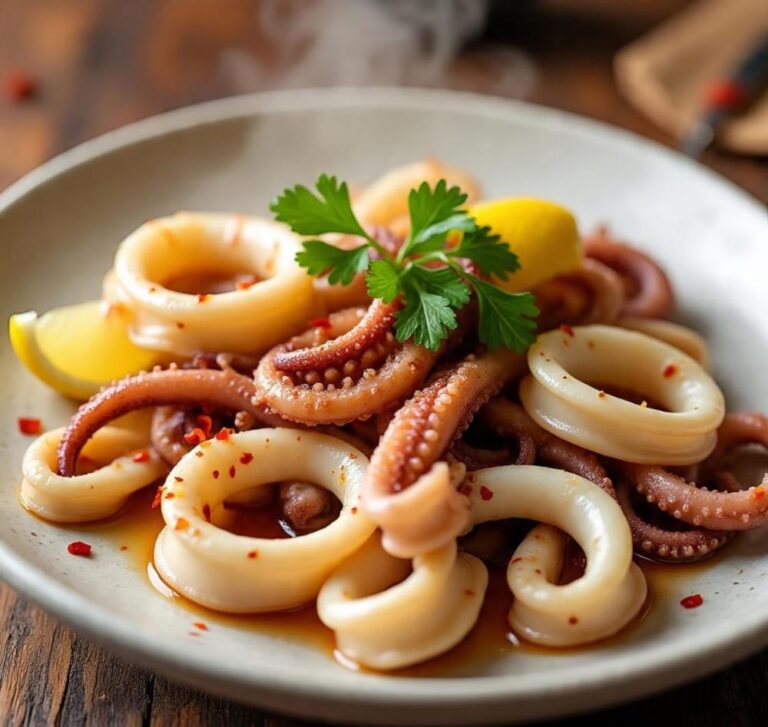Introduction
The word calamariere may not be widely familiar to English speakers, yet it holds an intriguing place in culinary and cultural discussions. Appearing in certain Mediterranean contexts, this term seems to combine language, tradition, and food heritage. In this article, we’ll explore the meaning of calamariere, trace its potential culinary origins, and look at its cultural significance across different regions.
What Does “Calamariere” Mean?
While the exact definition of calamariere may vary, it is most likely derived from Romance languages such as Italian or French. Breaking it down:
- Calamari: Refers to squid, a popular seafood dish in Mediterranean cuisine.
- -iere: A suffix often indicating a person, item, or tool associated with a particular thing (similar to “sommelier” or “cavaliere”).
From this, calamariere could mean:
- A specific squid dish.
- A utensil or serving plate used for squid meals.
- A historical or cultural role linked to seafood preparation.
Culinary Origins of Calamariere
1. Mediterranean Seafood Traditions
The Mediterranean diet, known for its emphasis on fresh fish, olive oil, and vegetables, has included squid for thousands of years. Coastal populations in Italy, Spain, Greece, and France developed numerous recipes for calamari:
- Grilled squid: Popular in Greece and Turkey.
- Fried calamari rings: Now a global appetizer.
- Stuffed squid (Calamari Ripieni): A classic Italian dish baked in tomato sauce.
- may have emerged from one of these regional preparations or a specialized method of serving squid.
2. Historical Food Service Roles
In the Middle Ages, European courts had professionals for almost every dining task:
- Sommelier: Wine expert.
- Fromager: Cheese specialist.
- Calamariere: Possibly, a seafood specialist focusing on squid dishes.
Though rare today, this naming pattern suggests that calamariere could historically refer to a person responsible for calamari preparation in fine dining.
3. Specialized Serving Dishes
High-end Mediterranean restaurants often use elegant serving ware. A calamariere might also describe:
- A plate designed to hold squid dishes.
- A small pan or tray used to grill or bake calamari.
Cultural Significance
In Italian Cuisine
Italian coastal towns—Sicily, Naples, and Amalfi—are known for elaborate seafood traditions. The term calamariere may appear in old regional dialects or recipes, representing cultural pride in squid-based dishes.
In French Gastronomy
French culinary language often uses “-ière” endings to label techniques, dishes, or tools. A French “calamarière” could reference a specific squid preparation style found in Provence or the Côte d’Azur.
In Global Culinary Conversations
Food blogs and travel writers occasionally revive rare terms like calamariere to describe authentic cultural dining experiences, especially when highlighting seafood festivals or traditional recipes.
Nutritional Value of Calamari-Based Dishes
If calamariere relates to squid cuisine, then understanding its health benefits is essential.
Key Nutritional Points:
- High in protein: Supports muscle health.
- Low in calories: Suitable for balanced diets.
- Rich in minerals: Contains zinc, selenium, and copper.
- Omega-3 fatty acids: Beneficial for heart and brain health.
Healthier Cooking Methods
- Grill or bake instead of deep-frying.
- Use olive oil and herbs instead of heavy batters.
- Pair with vegetables for a complete Mediterranean-style meal.
How to Prepare a Simple Calamariere-Inspired Dish
Ingredients:
- Fresh squid
- Olive oil
- Lemon juice
- Garlic, parsley, salt, pepper
Steps:
- Clean squid and slice into rings or keep whole for stuffing.
- Marinate with olive oil, lemon juice, garlic, and herbs.
- Grill or sauté until tender.
- Serve on a platter—possibly what some regions might call a “calamariere.”
Modern Use in Food Tourism
Travelers exploring Mediterranean regions may encounter references to calamariere during:
- Seafood festivals
- Local cooking classes
- Authentic coastal restaurants
These cultural experiences preserve ancient language and traditions, making them attractive to culinary tourists seeking authenticity.
Why Is “Calamariere” Gaining Attention Online?
- Culinary Curiosity: Rare food terms intrigue readers.
- Cultural Value: Words rooted in tradition appeal to travelers and food enthusiasts.
White-Hat SEO Strategy for Using the Keyword “Calamariere”
- Use it naturally within informative content.
- Avoid repeating it unnecessarily.
- Include related terms: squid dishes, Mediterranean cuisine, seafood recipes.
- Keep paragraphs short, use subheadings, and maintain readability.
FAQs
Is calamariere a common word?
No, it’s uncommon and mostly appears in culinary or cultural contexts.
Can I find a calamariere dish in restaurants?
Possibly in traditional Mediterranean restaurants, though it might be under a different name.
Does calamariere have multiple meanings?
Yes, depending on language and region, it could mean a dish, utensil, or historical role.
Conclusion
Calamariere is more than just a term—it reflects Mediterranean heritage, seafood traditions, and cultural dining history. Whether it refers to a squid recipe, a serving dish, or an ancient culinary role, it embodies the richness of coastal cuisine.

David is a passionate writer at UrbanMatter.com.in, sharing fresh perspectives on trending topics, technology, lifestyle, and more.

